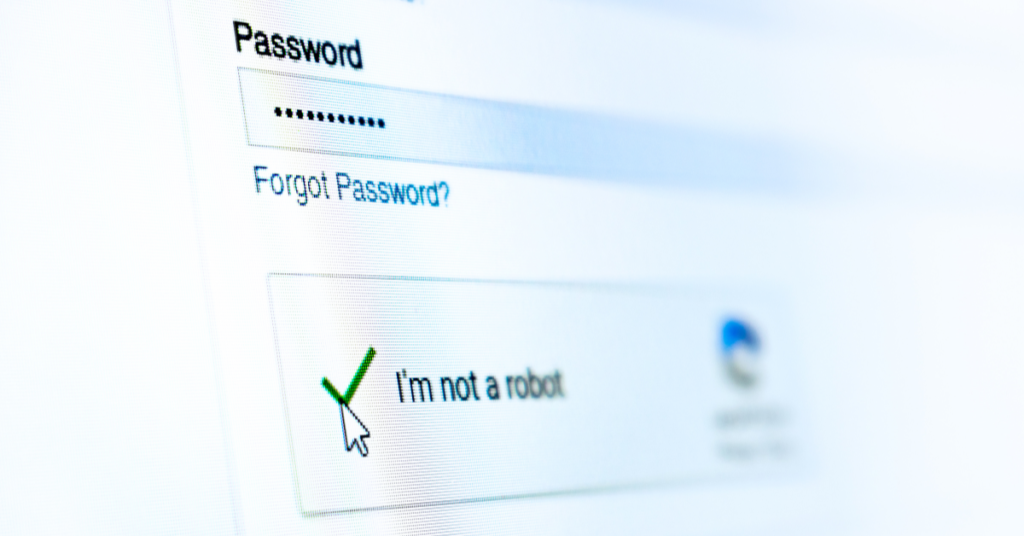
If you’ve ever had to solve an image puzzle, select all the traffic lights in a photo, or type blurry letters in an online form, then you’ve already interacted with a Captcha. Although it may sometimes seem annoying, this tool is key to protecting website security and preventing unwanted bot access.
In this article, we explain what a Captcha is, how it works, and why it’s important to protect your online business.
What does Captcha mean?
The word Captcha is an acronym for “Completely Automated Public Turing test to tell Computers and Humans Apart”. In other words, it’s a test that websites use to make sure that whoever is interacting with them is a real person and not a bot.
Bots are automated programs that can be used for various malicious activities, such as:
- Spamming contact forms.
- Carrying out brute force attacks to hack accounts.
- Creating fake accounts on online platforms.
- Making mass purchases of products in online stores to resell them.
Captcha helps block these activities by ensuring that whoever is interacting with the website is a human being.
How does Captcha work?
A Captcha is a test that humans can easily solve, but is very difficult for bots. Here are some examples of common Captchas:
1. Distorted text Captcha
This is one of the oldest types of Captcha. An image with distorted letters or numbers is shown, which users must correctly type into a text field.
2. Image selection Captcha
Users must select all images containing a specific object, such as traffic lights, cars, or crosswalks. This type of Captcha is very effective at distinguishing between humans and bots.
3. Google reCAPTCHA
This is one of the most advanced systems. The reCAPTCHA v2 version asks users to click a box that says “I’m not a robot”. The reCAPTCHA v3 version removes visible tests for users and analyzes browsing behavior to determine if it’s a human or a bot.
4. hCAPTCHA
This is an alternative to reCAPTCHA that focuses on protecting user privacy. It also uses image-based tests but does not collect personal data.
Why is it important to use Captcha on your website?
If you have a website, especially if it includes contact forms, comment sections, or registration features, implementing a Captcha is essential to protect your platform from malicious bots. Here are some reasons to use it:
1. Prevents spam
Bots often use contact forms to send spam messages. Captcha acts as a barrier that bots cannot overcome, keeping your inbox clean.
2. Protects user accounts
On websites that require registration, bots may try to hack accounts through brute force attacks. Captcha helps prevent these attempts by requiring users to prove they are human before logging in.
3. Prevents the creation of fake accounts
Many bots create fake accounts on online platforms to carry out malicious activities, such as leaving negative reviews or inflating user numbers. With a Captcha, you can prevent these bots from registering.
4. Improves the security of your online store
If you have an online store, a Captcha can prevent bots from placing mass orders for products and ruining the shopping experience for your real customers.
Captcha remains an important tool to protect websites from spam and malicious bot attacks. Although it can be a nuisance for users, there are more advanced versions that minimize friction and improve the experience.
If you’re looking to protect your online business, make sure to implement a Captcha in the most vulnerable areas of your website. This will help you keep your platform secure and provide a better experience for both your team and your customers.